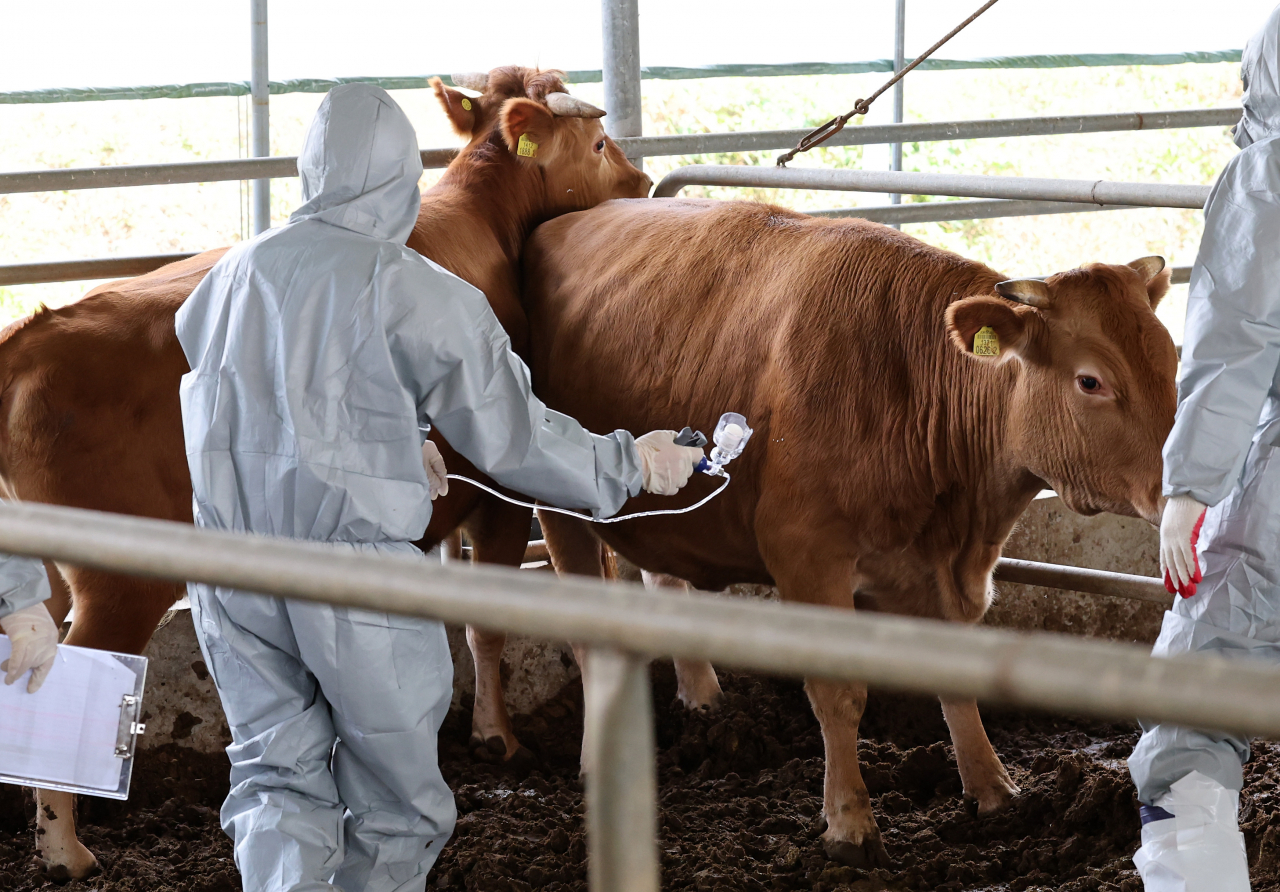S. Korea vaccinates nearly 82% of cattle amid LSD outbreaks
By YonhapPublished : Oct. 28, 2023 - 10:18

South Korea's agricultural authorities said Saturday they have vaccinated nearly 82 percent of cattle subject to emergency inoculation amid growing concerns over the nationwide spread of lumpy skin disease.
As of Saturday morning, health authorities have administered the vaccine to 357,000 out of 438,000 cows subject to emergency inoculation, according to the Ministry of Agriculture, Food and Rural Affairs.
Since the first-ever outbreak of the viral infection last week, the country has so far confirmed 52 LSD cases nationwide, including five cases from the previous day. Authorities are investigating six suspected cases as well.
The number of cattle culled so far came to 3,624.
The agriculture ministry has been scurrying to further expand its emergency vaccination campaign by securing more vaccines from abroad, and the interior ministry vowed to manage the overall vaccination program based on plans drawn up by each local government.
South Korea plans to complete the vaccination program by early November, although authorities believe the number of cases will rise for the time being, considering it takes around three weeks for vaccinated cattle to develop protective antibodies against the disease.
LSD, which does not affect humans, is a highly infectious disease that causes skin lesions, fever and loss of appetite, often leading to a fall in milk production and even death. It affects cattle and buffalo via mosquitoes and other blood-feeding insects.
Meanwhile, a cow escaped from a farm in Imsil, 218 kilometers south of Seoul, the previous day while awaiting inoculation. Authorities said it safely returned to the farm and was not infected with the disease.(Yonhap)



















![[Today’s K-pop] Treasure to publish magazine for debut anniversary](http://res.heraldm.com/phpwas/restmb_idxmake.php?idx=642&simg=/content/image/2024/07/26/20240726050551_0.jpg&u=)